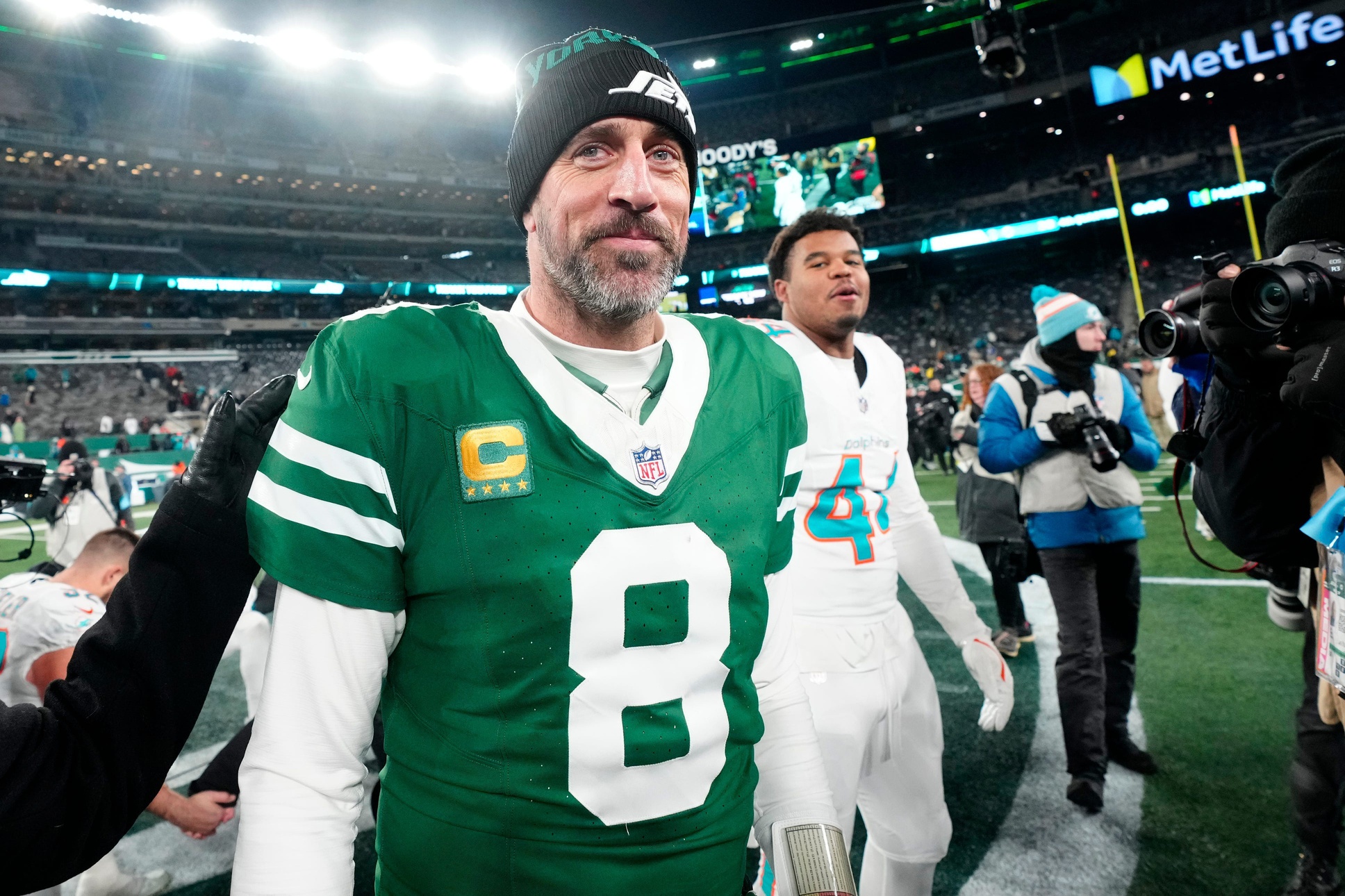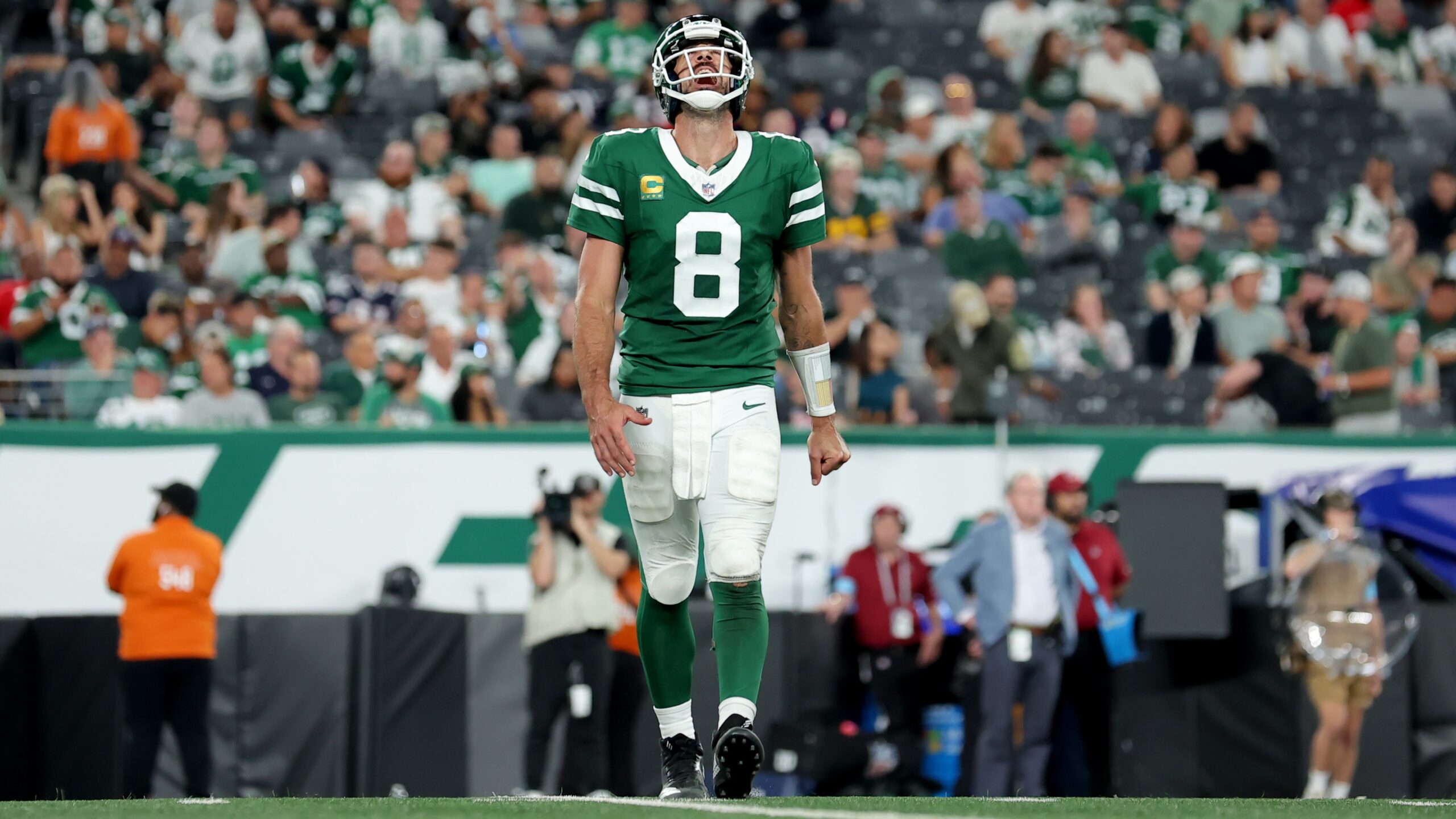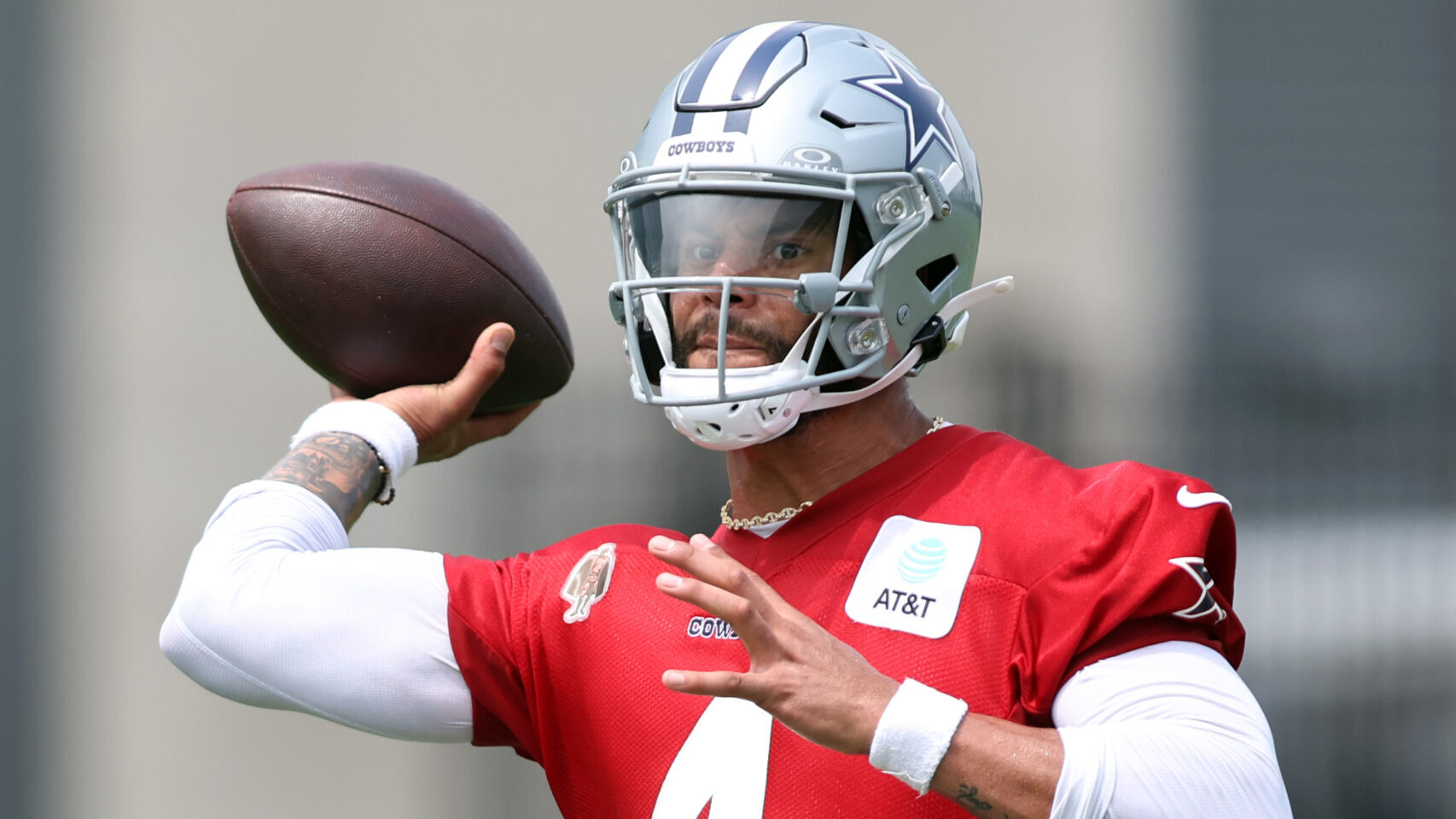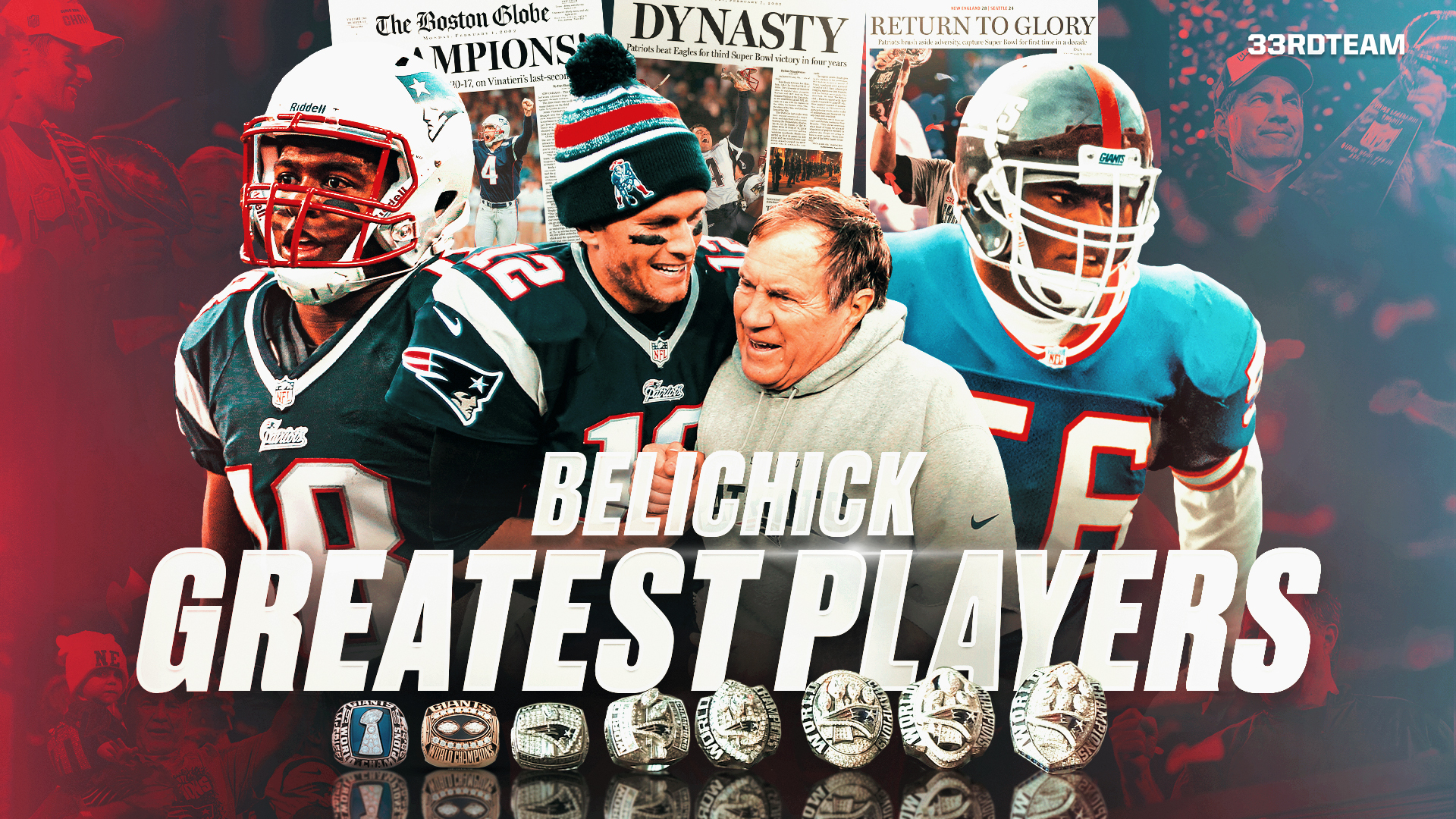Analysis
9/14/22
10 min read
NFL Week 1: Over-Reactions, Under-Reactions
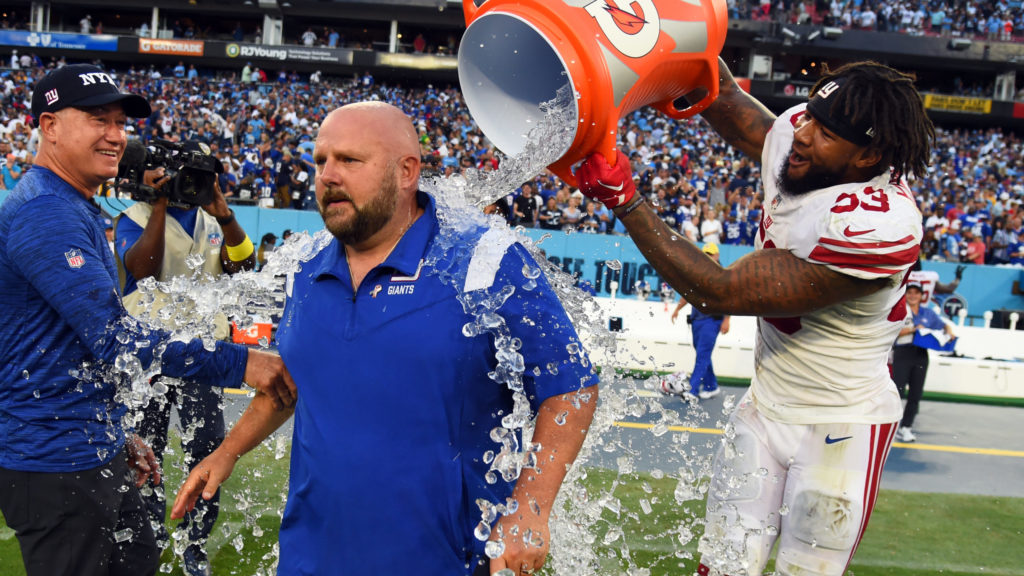
Editor's note: Joe Banner, former NFL executive, whips around the league every week, identifying trends and issues related to the league's 32 teams.
Everyone loves to overreact to the first week of regular-season football. There were four teams that surprised most observers in Week 1 (both good and bad), but by the end of the season, our preseason opinions will likely hold true:
[bc_video video_id="6312226776112" account_id="6312875271001" player_id="default" embed="in-page" padding_top="56%" autoplay="" min_width="0px" playsinline="playsinline" picture_in_picture="" language_detection="" max_width="640px" mute="" width="100%" height="100%" aspect_ratio="16:9" sizing="responsive" ]
New York Giants
Teams who have sustained success have oftentimes taken a step backward before building from the ground up to be good in two or three years. However, when teams do that, Year 1 is usually tough, and they will again compete for a top-5 draft pick. For the Giants, there will be a few games that make you feel like they're on the right track but more games that remind you this is the early stage of a rebuild.
I’ve been very complimentary of the Giants' offseason. They’ve positioned themselves to be good in three years. Despite the defeat of the Titans, they still have question marks at quarterback with Daniel Jones, a young but weak offensive line, and a relatively shaky set of wide receivers.
The Giants' defense is better and playing aggressively, which I think will leave it improving faster than the offense. I still believe by the end of the season the New York will wind up with a top-10 draft pick. But, fans should take comfort in the approach to the season and the aggressiveness of a young coaching staff that will be key to hopefully turning the franchise around.
[bc_video video_id="6312188047112" account_id="6312875271001" player_id="default" embed="in-page" padding_top="56%" autoplay="" min_width="0px" playsinline="playsinline" picture_in_picture="" language_detection="" max_width="640px" mute="" width="100%" height="100%" aspect_ratio="16:9" sizing="responsive" ]
Chicago Bears 
Although the Chicago Bears managed to beat the San Francisco 49ers, the team still has major weaknesses throughout the roster. While Justin Fields’ mobility gives him some flexibility to have modest success, I have not been a Fields fan going back to the draft.
Although the Bears’ OL played well in the game — which I believe can be partially credited to the inclement weather — it likely will prove to be a major liability during the season. This roster has a long ways to go before it can successfully compete against good teams.
San Francisco 49ers 
I still very much believe this is a playoff team with the potential to advance deep into January. Lance's performance early in the game was solid. When they fell behind and had to pass virtually every down in terrible weather conditions, he and the rest of the offense fell down.
Kyle Shanahan (who may be a top-3 offensive mind in the league) called an extremely conservative game. We will soon know if that was reflective of the weather or a lack of confidence in the second-year quarterback - but everything I've heard out of that building is it was more weather and score driven. One rainy game has not changed my opinion that Lance will establish himself as a top-10 QB in the next few seasons.
[bc_video video_id="6312238776112" account_id="6312875271001" player_id="default" embed="in-page" padding_top="56%" autoplay="" min_width="0px" playsinline="playsinline" picture_in_picture="" language_detection="" max_width="640px" mute="" width="100%" height="100%" aspect_ratio="16:9" sizing="responsive" ]
Seattle Seahawks
Despite their victory against the Denver Broncos Monday night, the Seahawks' offense (other than the WR group) will prove to be a liability. The defensive talent on the roster is also limited. I do not believe Pete Carroll will play aggressively enough (attacking the quarterback, blitzing, etc.) to be successful this season. I still believe it will be a long season in Seattle.
Why Is Clock Management So Difficult?
This week, there was a host of clock-management issues that coaches from around the league mismanaged. There are always some debatable scenarios where you can legitimately argue both sides of a decision, but there are also a clear-cut situations where coaches all too frequently make critical errors. Two examples from Week 1:
Campbell's Strategy Misfires for Lions
With 0:54 remaining in the first half in Detroit, the Lions decided to take a defensive time out before a 2nd-and-14 play from the Eagles' 32-yard line. The Eagles were probably content with letting the clock go down to zero and go into halftime without running another play after a sack of of QB Jalen Hurts on first down.
To that point in the game, Hurts had run for 57 yards and a TD, including three scrambles of 10 or more yards. After the timeout, he ran for another 10 and put Philadelphia back in the driver’s seat. The Eagles got the first down and wound up scoring on a 23-yard field goal, which ended up being the difference in a 38-35 win.
For all of Dan Campbell’s attempts to rally the Lions emotionally on Hard Knocks, he still has a ways to go in his development as an NFL head coach from a schematic and strategic standpoint.
Bengals' Time-Management Issues
Another example of what I consider a cut-and-dry decision by a head coach: Zac Taylor's decision for the Bengals to punt the ball with 15 seconds remaining on the play clock with 1:04 left in OT against the Steelers.
There was no way Cincinnati was getting the ball back, so the only thing Taylor could do here was play for the tie. Giving the Steelers an extra 15 seconds equates to 2-3 extra offensive plays, which Pittsburgh took full advantage of by kicking a game-winning field goal as time expired in OT.
Taylor blamed “snapping issues” (long-snapper Clark Harris had to leave the game due to an injury in the fourth quarter) as the reason he didn’t want the punt unit to milk the remaining 15 seconds off of the play clock. But even with a backup long-snapper in the game, the fact that they snapped the ball so early in the play clock should have been of no consequence. The problem was the long-snapper replacement on the play was a third-string tight end, not the play clock expiring.
Andy Reid and Bill Belichick have long been criticized for their clock management, but it seems like this is a league-wide issue. At this point, we assume every team has a “time-management guy” on the headset in the press box, so it’s difficult to understand why these issues continue to persist.
We will continue to monitor these types of scenarios throughout the season and point out poor decisions by head coaches.
Prioritizing O-Line vs. Weapons
Philosophical decisions that teams make on how to construct rosters are what separate the ones most likely to win vs. the teams most likely to struggle. It would be great on offense to have both a top-tier offensive line and a great set of weapons for your quarterback to target.
Very rarely in a league with a salary cap can teams afford to have both. In instances where teams need to choose, there appears to be split on whether to prioritize offensive lines or weapons.
Because of the direct impact the offensive line has on both the run and pass games, my opinion on that question has always been the offensive line should take priority. Last week's games (and in most games, we will see going forward) had some examples where inadequate offensive line play was the root of a team underachieving.
Here are the teams I see in that bucket:
[bc_video video_id="6312183127112" account_id="6312875271001" player_id="default" embed="in-page" padding_top="56%" autoplay="autoplay" min_width="0px" playsinline="playsinline" picture_in_picture="" language_detection="" max_width="640px" mute="muted" width="100%" height="100%" aspect_ratio="16:9" sizing="responsive" ]
Cincinnati Bengals
Cincinnati defied the odds last season and made it to the Super Bowl with one of the weaker offensive lines in the league. This is the exception, not the rule. If I was building this team, I would be worried.
QB Joe Burrow lost half of his rookie season thanks to the Bengals' overmatched offensive line in 2020. Even with the offseason additions, I do not believe they have adequately solved the root problem, which became clear on Sunday with Burrow being sacked seven times by the Steelers and under constant pressure throughout the game.
Make no mistake, the Bengals will still be a good team considering the quality of the rest of their roster. However, the offensive line will likely keep them from going as far as they otherwise would have.
[bc_video video_id="6312226156112" account_id="6312875271001" player_id="default" embed="in-page" padding_top="56%" autoplay="autoplay" min_width="0px" playsinline="playsinline" picture_in_picture="" language_detection="" max_width="640px" mute="muted" width="100%" height="100%" aspect_ratio="16:9" sizing="responsive" ]
Dallas Cowboys
The narrative about the Cowboys throughout the offseason was focused on the loss of Amari Cooper and the general quality of the team's weapons. The fact is that when healthy, wide receivers CeeDee Lamb, Michael Gallup and James Washington along with Ezekiel Elliott, Tony Pollard and Dalton Schultz are actually an outstanding group of skill-positions players. What the Cowboys should have realized is that during the past year, they have allowed their offensive line to become a weakness of their team, limiting the offensive weapons and QB Dak Prescott.
Don’t forget, not only did Prescott get sacked four times in Week 1 against Tampa Bay, but he broke his thumb on one of the 17 pressures the Bucs got on him. It is extremely difficult to win with a below-average offensive line and not shocking that it led to a QB injury.
Carolina Panthers
Similar to the Bengals, the Panthers attempted to use the offseason and draft to fix their O-Line. At this point, it’s hard to have confidence they’ve succeeded. In Baker Mayfield's first start as a Panther, he was sacked four times.
Even with a talented skill group around him, Christian McCaffrey totaled just 57 total yards from scrimmage on the day — his lowest in a game where he played more than 25 snaps since October 2019. It is going to be difficult for this offense and Mayfield to show what they are capable of behind that line.
[bc_video video_id="6312193844112" account_id="6312875271001" player_id="default" embed="in-page" padding_top="56%" autoplay="autoplay" min_width="0px" playsinline="playsinline" picture_in_picture="" language_detection="" max_width="640px" mute="muted" width="100%" height="100%" aspect_ratio="16:9" sizing="responsive" ]
Las Vegas Raiders
The Raiders invested heavily this offseason in their passing weapons. They traded for Davante Adams while extending Hunter Renfrow and Darren Waller. However, they’ve not done the same for their offensive line.
Even if Adams can be a significant upgrade over their receiving options from a year ago, expect more of the same from the Vegas offensive line that gave up six sacks in 24-19 loss to the Chargers, including a game-clinching strip-sack during a two-minute drill in the fourth quarter.
The Raiders are a talented team with a quality coaching staff and are likely to win their fair share of games. However, their aspirations to progress in the playoffs will be hard to realize without this offensive line improving dramatically.










